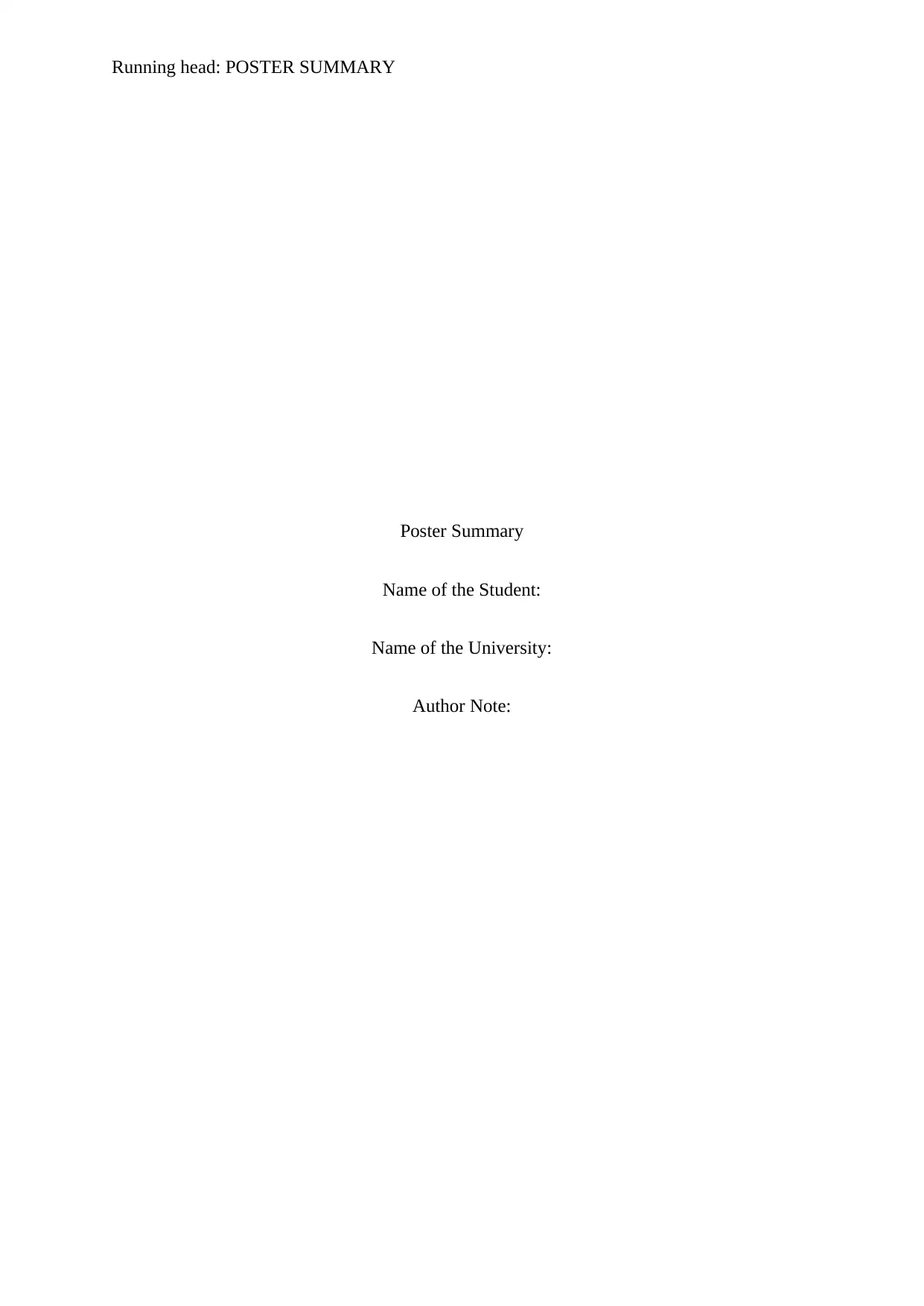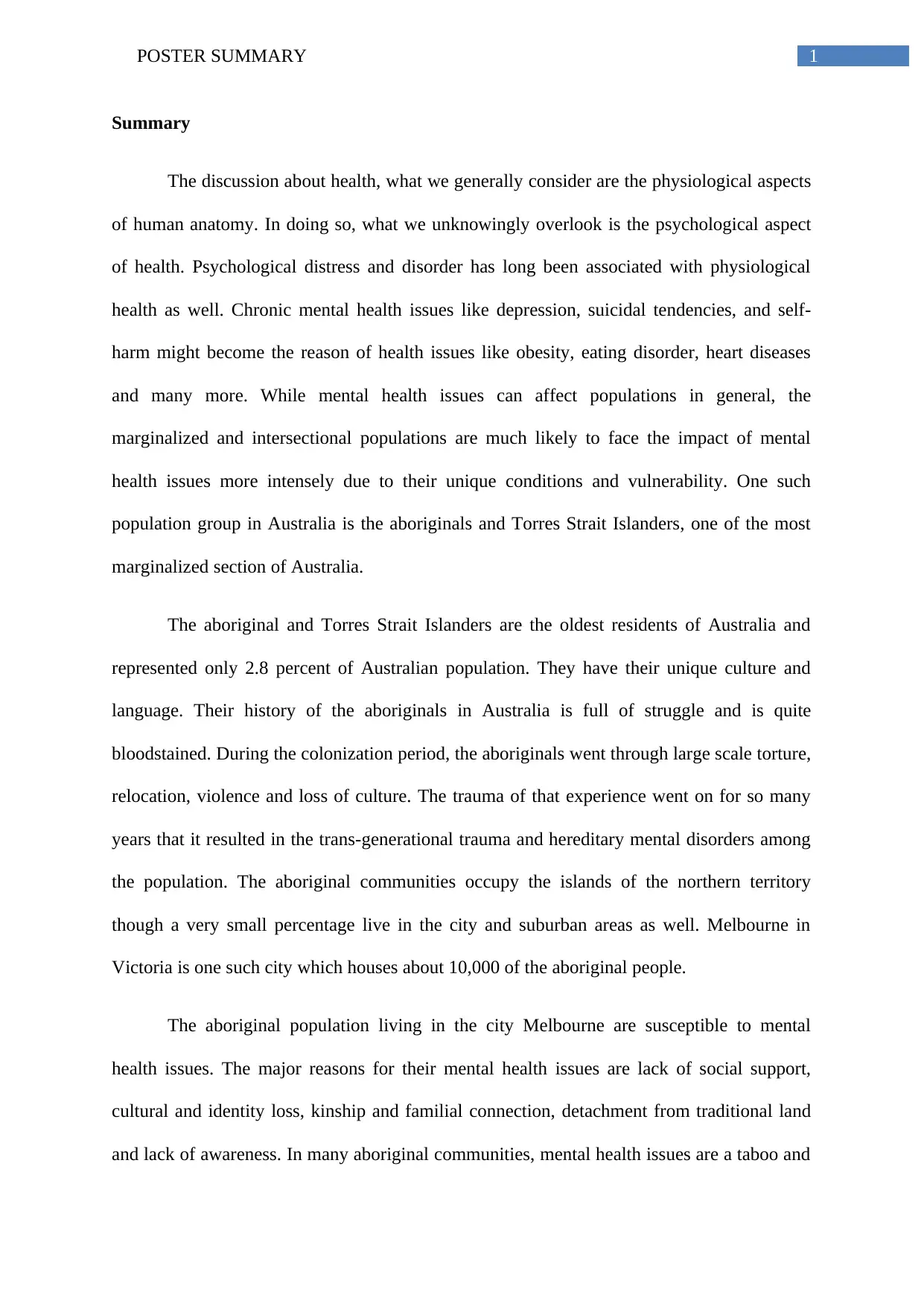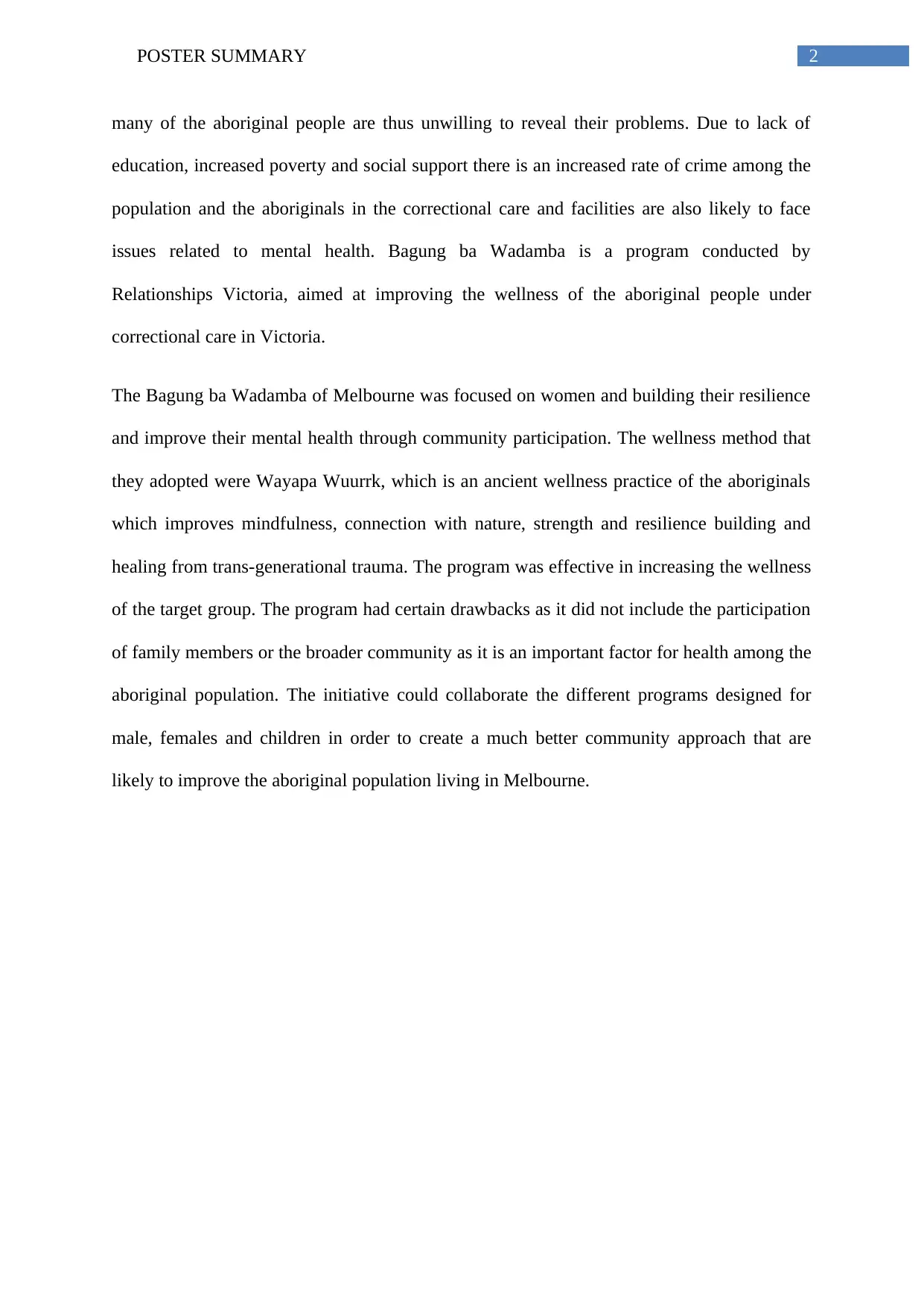Melbourne Aboriginal Health, HSH724 AT1 T2: Poster Summary Report
VerifiedAdded on 2022/09/12
|3
|575
|21
Report
AI Summary
This report summarizes a poster that examines the mental health challenges faced by the Aboriginal and Torres Strait Islander population in Melbourne, Australia. The poster highlights the historical trauma, cultural loss, and lack of social support as significant contributors to mental health issues within this marginalized community. It focuses on the Bagung ba Wadamba program, a Relationships Victoria initiative aimed at improving the wellness of Aboriginal women in correctional care through the Wayapa Wuurrk method. The report analyzes the program's effectiveness in building resilience and promoting healing while also acknowledging its limitations, such as the lack of broader community and family involvement. The poster emphasizes the need for a more comprehensive community-based approach to address the complex mental health needs of the Aboriginal population in Melbourne, integrating programs for men, women, and children to create a more supportive and effective environment.
1 out of 3










![[object Object]](/_next/static/media/star-bottom.7253800d.svg)